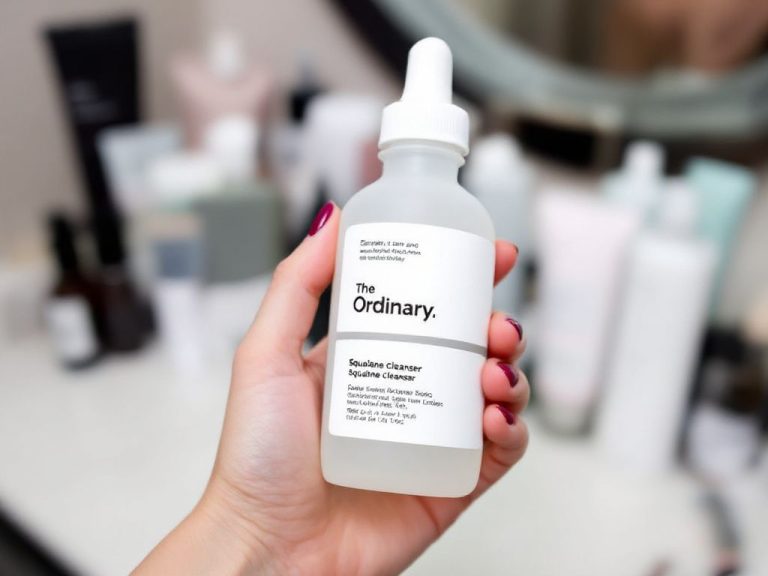Ever had one of those days where you look in the mirror and feel like your skin is playing host to an unwelcome gathering of pimples? You’re not alone. Acne, as pesky as it is, can be influenced by what you eat. Yes, the so-called “inflammatory foods” could be major players in making your skin erupt. Let’s dive into this intriguing subject of how diet and acne are linked.
Table of Contents
ToggleThe Great Skin Debate: Food and Acne Connection
Is there truly a link between the foods you munch on and the acne that seemingly pops up overnight? If you’ve been navigating this minefield, you’re probably just as confused as many folks out there. The consideration of a well-balanced inflammation diet could be your ticket to a clearer complexion. Before jumping into conclusions, though, let’s understand the science part.
Inflammatory foods are known for triggering bodily reactions that can ramp up skin inflammation, thus leading to the dreaded acne. Foods high in refined sugars and unhealthy fats are among the usual suspects. It’s like giving your skin an invitation to the acne party. Conversely, adopting anti-inflammatory eating habits can potentially lead to improved skin conditions.
Breaking Down Inflammatory Foods
What Exactly Are Inflammatory Foods?
You might lift an eyebrow at the term “inflammatory foods.” Basically, these are foods that can lead to inflammation within your body. Regular intake can potentially escalate issues, including pesky skin reactions like acne. Let’s talk a bit about some common trigger foods often lurking in our daily diet.

- Refined Carbs and Sugars: White bread, pastries, sodas. Delicious yet devious!
- Fried Foods: Yes, those golden fries might be a forbidden delight for your skin.
- Processed Meats: Think sausages, hot dogs, and certain deli meats.
- Trans Fats: Found in cakes, cookies, and margarine. Sneaky instigators.
Bam! Bewildering, right? These scary guys might be tampering with more than just your waistline.
The Science Behind It
Here’s the thing: when we consume a lot of these trigger foods high in refined sugars or trans fats, our blood sugar levels can spike. This triggers the body’s insulin level to rise, leading to an increase in oil production in the skin. Excess oil can clog pores and partner up with bacteria and dead cells, inviting acne.
High glycemic-index foods are also part of this band. They can propel hormone fluctuations, which in turn can provoke acne. Now that’s science waving a red flag!
Could an Inflammation Diet Be Your Savior?
Facing acne issues, and considering giving an inflammation diet a shot? Trust me, this could be the game-changer you’ve been awaiting. It’s all about choosing foods that reduce inflammation and shunning the culprits. Let’s break it down smoothly.
Food to Embrace

- Omega-3 Fatty Acids: Think fish like salmon and sardines. Chia seeds do the trick too.
- Fruits & Vegetables: Sub in colorful, antioxidant-rich picks like berries, spinach, and kale.
- Whole Grains: Invest in brown rice, oatmeal, and whole-wheat bread.
- Probiotic-heavy Foods: Yogurts and kefir are not only tasty but also gut-friendly.
- 5. **Green Tea: Research suggests this calming beverage has the potential to reduce inflammation.
But Why Do These Foods Work?
These items are packed with antioxidants, vitamins, and healthy fats. They combat inflammation and balance out your body’s natural systems—all in favor of clearer skin. A diet turned anti-inflammatory equals one potentially swollen enemy less in the battle against acne.
Common Mistakes to Steer Clear Of
Even with the best intentions, it’s easy to stumble into mistakes when transitioning your eating habits. Here are a few pitfalls to avoid:
- Overeating “Healthy” Carbs: Whole grains are fabulous, but in moderation. Eating them excessively could trip up that blood sugar option we talked about.
- Neglecting Balance: Don’t forget that balance is key. It’s not just about what you don’t eat but consuming the right amounts and combinations.
- Supplements Over Whole Foods: Might want to keep an eye not to rely solely on supplements. Actual foods have a synergistic effect, where nutrients extraordinarily blend and work their magic together.
- Ignoring Portion Sizes: Even the good stuff can be overdone. Keep your portions in check.
Let’s Circle Back to Real-Life Changes

By now, it should feel more explicit that the correlation between dietary changes and skin conditions is alive and well. Your road to clear skin will certainly require some food compromises and faith in the inflammation-working diet.
Personal Experiences in Practice
Try initiating small swaps, like opting for olive oil instead of using butter. Feel the gradual shift as acne eases ceased its frequent visits. You might see results over time—patience, my friend, is your newfound ally.
Take part in a social connection, chat with a real deal nutritionist, or join forums discussing trigger foods and skin reaction improvement. You’ll find various relatable stories from folks treading the same journey.
The Bottom Line on Inflammatory Foods and Acne
Navigating the minefield of dietary choices to maintain clearer skin doesn’t need to feel like a battle. Science-backed insights and an appropriate inflammatory diet can steer your journey from problematic skin to potentially clearer, radiant skin.
You might circle back a few times, sometimes hitting bumps along the way; remember the golden rule: balance and consistency. While not every acne case is diet-induced, considering the insights you’ve just gathered might significantly benefit your quest against acne.
Armed with a more informed perspective on inflammatory foods, trigger foods, and their impacts should make decision-making a tad easier. Give aligning your diet with these suggestions a try, and trust me, your skin might just thank you!
Frequently Asked Questions
What is an anti-inflammatory diet?
An anti-inflammatory diet is a way of eating that helps reduce the risk of certain chronic diseases and manage existing health conditions. It emphasizes consuming foods rich in vitamins, minerals, omega-3 fats, antioxidants, and other beneficial compounds, such as plant foods, oily fish, and healthy fats. This diet helps support the immune system, protect cells from damage, and block harmful inflammatory pathways[1][3][5).
What foods should I include in an anti-inflammatory diet?
Foods that are beneficial in an anti-inflammatory diet include colorful fruits and vegetables, fiber-rich whole grains like oatmeal and brown rice, legumes such as chickpeas and lentils, healthy fats like olive oil, nuts, and fatty fish. Fresh herbs and spices like turmeric, ginger, and rosemary are also recommended for their anti-inflammatory properties[1][3][5).
What foods should I avoid on an anti-inflammatory diet?
Foods to avoid include highly refined or processed foods, such as processed meats, deep-fried foods, whole milk and whole milk dairy products, refined carbs, and simple sugars like white bread, candy, and high fructose corn syrup. These foods can trigger inflammation and are linked to chronic diseases like heart disease, diabetes, and cancer[1][3][5).
How can an anti-inflammatory diet benefit my health?
An anti-inflammatory diet can improve overall health by reducing the risk of chronic diseases such as heart disease, obesity, inflammatory bowel diseases, arthritis, Alzheimer’s, and cancer. It can also help manage symptoms of existing chronic conditions, lead to a longer life, and even slow the aging process[1][3][5).
References- UPMC. (2022). What Are the Benefits of an Anti-Inflammatory Diet?.
- Henry Ford Health. (2020). The Health Benefits Of An Anti-Inflammatory Diet.
- The Nutrition Source. Diet Review: Anti-Inflammatory Diet.








